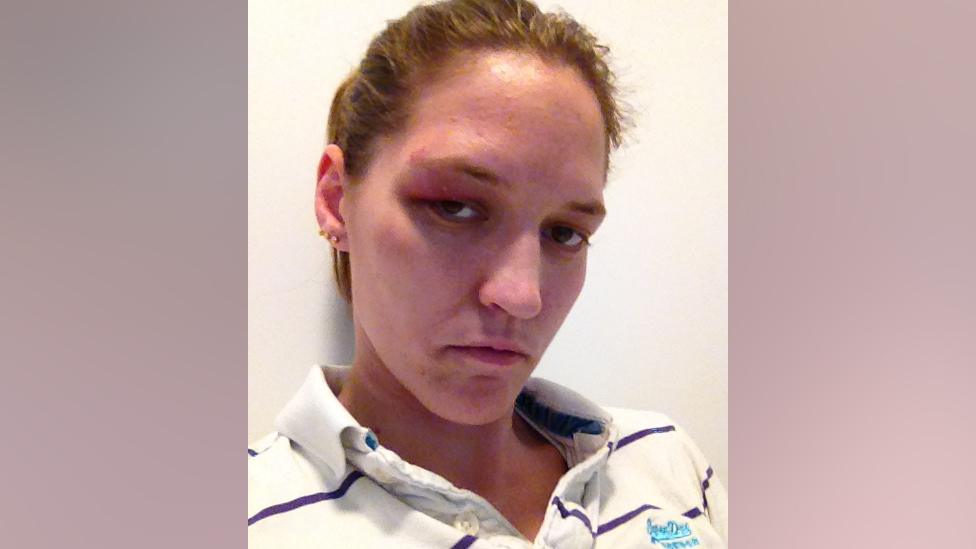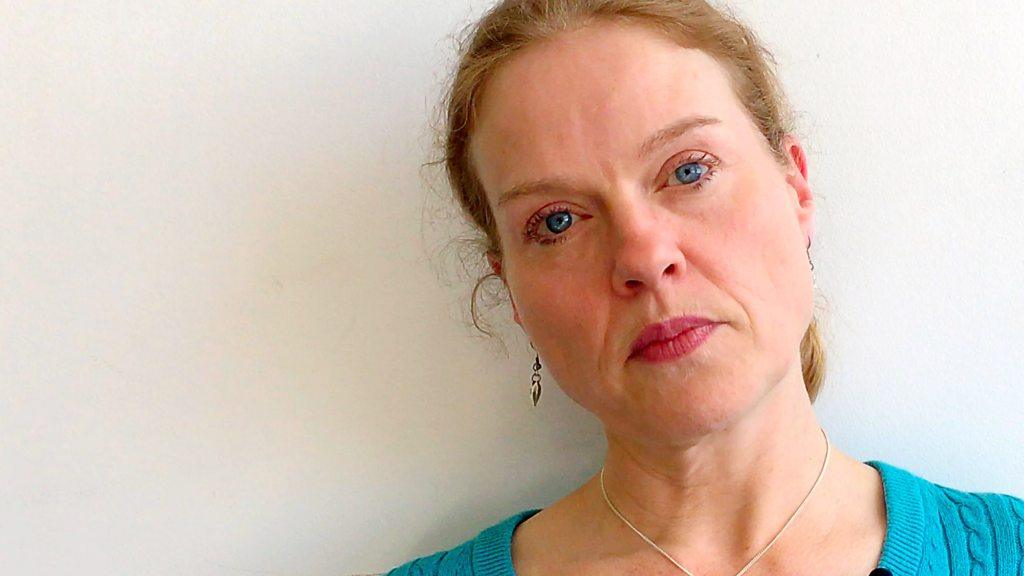People stuck in mental health hospitals for too long, says Mencap
- Published

Mencap says thousands of people spend unnecessary years in mental health hospitals (stock image)
Rose (not her real name) has been waiting to leave a mental health hospital for three years, but due to lack of provision in the community, the 35-year-old is still there.
According to the charity Mencap, she is one of thousands of learning disabled and autistic people who spend years in mental health hospitals unnecessarily.
It calls this "a national scandal".
The NHS says it is working hard to discharge patients into community settings safely.
Rose's mum, Sarah, has been left heartbroken.
"Being in hospital isn't good for Rose. She has had her hair pulled out by a patient and she is bored," she told the Access All podcast.
"She can't just say, 'I fancy going to the shops to buy a bar of chocolate'," Sarah added.
Rose has learning disabilities and has been in a psychiatric hospital for 10 years. Sarah has withheld her daughter's real name because she is fearful of speaking out - worried that things could backfire if she talks openly.
The hospital where Rose is staying controls her movements - at times Sarah says Rose craves the smallest bit of independence, even something as basic as going for a walk on her own, but according to Sarah the hospital says "no".
"She always has to have a carer go with her," she explains.
When she was younger, Rose was "just about" managing in the community, Sarah says. She attended college and left home but when her half-sister died of cancer, she began to self-harm. She was found walking the streets at night in a confused state and was detained under mental health legislation.
'Bored'
Sarah says hospital is difficult for her daughter.
"We sit in what they call the therapy kitchen, which is, you know, the table and chairs. and that's it. It's not comfy. It's not homely." she told Access All.
And it is not just the physical environment of the hospital that is a problem.
"Rose is bored. There is only so much colouring that she can do."
Despite these challenges, three years ago, Rose was declared well enough to leave, but doctors have consistently refused to discharge her because they say there is nowhere in the community that would support her needs.
Mencap says there is a gap in provision for community care, meaning thousands of patients like Rose are stuck in hospitals.
"The scandal of locking people up and destroying lives must end. It's an appalling waste of public money on the wrong type of care," says the charity.
According to NHS England statistics, more than 2,000 people are being detained in hospital, with the average stay being just under five years.
'I couldn't settle myself'
Alexis Quinn also spent years in a psychiatric hospital.

Alexis Quinn was detained under mental health legislation following issues caused by the death of her brother
A mother with a young daughter, Alexis worked as a teacher and represented the UK in international swimming competitions.
She began to experience severe mental health problems after the death of her brother.
"My thoughts were really repetitive and quite awful at times. I would seek out movement. I couldn't settle myself. My skin felt fiery, my hearing was very sensitive," she says.
Alexis says her symptoms were the result of autism, and she had hoped to have her needs met in the community.
Instead she found herself detained under mental health legislation.
"Hospitals are chaotic, they're noisy, they're sensory driven," she says. "As soon as I was admitted, everything just got a whole lot worse, which was unimaginable for me at the time."
To get better Alexis felt she needed to be in a place that gave her some sense of control. She found the constant changing of staff and locked doors made her feel unsafe and after four years in hospital, Alexis decided to take things into her own hands.
"With the help of a retired GP, I escaped by running into a car, travelling to Dover and boarding a ferry to France. I then boarded a plane for Dubai and then ended up in Lagos [Nigeria]. The staff at the rehabilitation [centre] looked on as we drove away, and I knew that they would try to follow me."

Alexis Quinn escaped from a rehabilitation centre and fled to Lagos.
She is adamant her experience was expensive to taxpayers and unnecessary and believes she would have recovered sooner in the community.
"I might have needed somebody to come into my house. I don't think it would have cost very much money. But instead, you know, it was chosen to spend a couple of million on traumatising me in a hospital. I mourn the four years lost, not just for myself but for my daughter too. I am not angry at staff, just very sad."
Successive attempts by the government and the NHS to reduce inpatient numbers have failed.
The most recent of them, an NHS Long Term plan, was created in 2019, with the aim of discharging 50% of learning and autistic patients from psychiatric wards by 2024. It has brought mixed results.
In a statement, the NHS says it "has increased investment in community support to enable more people with a learning disability and autistic people to receive personalised care in the community".
It adds that the number of learning disabled people leaving hospital has exceeded targets - but acknowledges there has been a rise in the number of autistic people who remain admitted.
Mencap says this amounts to a national scandal and has demanded that it be brought to an end.
Getting community provision to support patients is possible but initially requires significant investment in appropriate housing and specialist staff teams, but Mencap says in the long term this is a cheaper solution than putting people in hospital.
The charity's head of policy, Dan Scorer, told Access All families should demand better outcomes for their loved ones.
"This is about doing what's right, and what people have a right to, which is a life in the community and not spending years being detained," he said.
Related topics
- Published9 February 2022

- Published3 May 2018

- Published18 January 2019